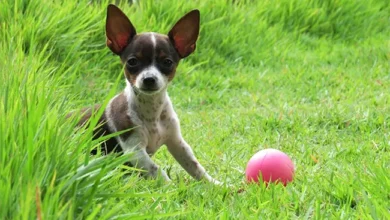
Whether you’re a first-time pet parent or a seasoned pro, there’s always something new to learn when it comes to puppies. From what to feed them to how to play with them, it’s important to do your research to ensure your new pet has the best start in life. Keep reading to learn everything you need to know about raising a happy, healthy puppy.

Preparing for Your New Puppy
There are several steps you can take to make sure you’re prepared for your new pet. One of the smartest ways to prepare is by investing in a pet insurance plan. Puppy insurance is a type of pet insurance that helps to cover the costs of veterinary care for your pup. It can help to pay for routine care, such as vaccines and vet check-ups, as well as unexpected expenses, such as emergency surgery or treatment for illness or injury.
Read More:
- Dog Feeding Time: How Much and How Often?
- Teach a Dog to Fetch | The Comprehensive Guideline to Teach a Dog to Fetch a Frisbee.
- Incredible Methods To Manage Your Dogs Weight
- TOP 10 GREAT DOG GIFTS FOR CHRISTMAS!
- How To Create a Healthy Diet for Your Dog
When shopping for pet insurance, it is important to compare policies carefully. Some pet insurance policies won’t cover certain breeds due to hereditary conditions, while others have age limits. Other things to consider include deductibles, premiums, and wellness plans.
You can also make sure you’re well equipped for your pup’s health care needs by investing in a handful of basics, such as medications for flea and tick prevention, dog shampoo, a brush, and nail clippers.
Playing and Exercising With Your Puppy
Playing and exercising with your puppy is important for several reasons. It helps them to get the exercise they need, it provides mental stimulation, and it strengthens the bond between you and your pup. There are a variety of ways to play and exercise with your new pet, depending on their age and personality.
Doggies under 4 months old should mainly be playing fetch or tug-of-war games. Fetch can be played inside or outside; simply throw a toy or ball for your pup to fetch and then praise them when they bring it back. Tug-of-war is a great way to teach your pup not to mouth humans, as well as strengthening their grip. Make sure to let them win occasionally so they don’t become too competitive!
Pups 4 months to a year old can start learning more complex commands such as “roll over” or “stay.” They can also start practicing agility courses or participating in obedience trials. Be sure to keep the exercises fun and positive, rewarding your pup with treats along the way.
Older dogs over 1 year old can participate in more strenuous activities such as long walks, jogging, biking, swimming, or playing Frisbee®. Again, make sure these activities are kept safe and positive for both you and your dog—nobody wants an injured pet!
Setting Up Special Areas for Your New Pup

Setting up special sleeping and eating areas is one of the most important things you can do as a new puppy parent. Not only will this help keep your home clean, but it will also help your new family member learn where to eat and sleep.
One of the most important things is to make sure the sleeping area is comfortable and cozy for your new pet. You may want to consider purchasing a crate or dog bed. If you choose to use a crate, be sure to place it in a quiet, warm, and comfortable spot in your home. If you choose to use a dog bed, be sure to place it in a spot where your pup can feel safe and secure.
When it comes to feeding your furry family member, you will want to make sure his food and water dishes are easily accessible. You may also want to consider purchasing a food and water dispenser to make feeding time easier.
When welcoming a new pup into your family, there are several things you can do to make sure you’re prepared. Investing in pet insurance and simple dog care basics, setting up sleeping and eating areas, and playing with your pup are some great ways to create a safe and healthy environment.



